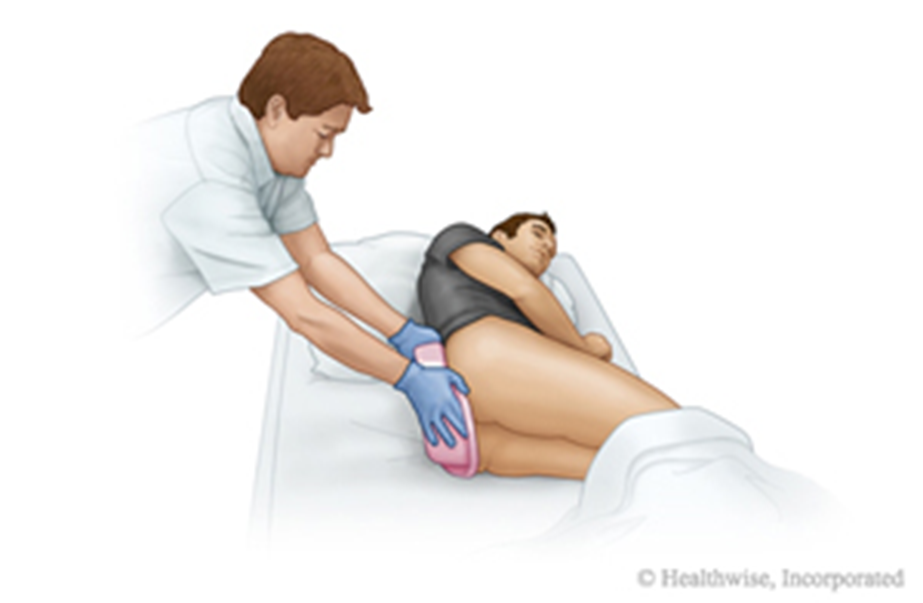A client is admitted with the diagnosis of Wernicke's syndrome. Which assessment finding should the nurse use in planning the client's care?
Right lower abdominal pain.
Peripheral neuropathy.
Confusion.
Depression.
The Correct Answer is C
Choice A reason: Right lower abdominal pain is not typically associated with Wernicke's syndrome and would likely indicate a different issue.
Choice B reason: Peripheral neuropathy can be a symptom of Wernicke's syndrome, but it is not as central to the condition as confusion, which is a hallmark sign.
Choice C reason: Confusion is a primary symptom of Wernicke's syndrome and should be used in planning the client's care, as it indicates acute encephalopathy and the need for immediate treatment with thiamine.
Choice D reason: Depression may be present in clients with Wernicke's syndrome, but it is not a primary assessment finding used to plan care for the acute stage of the condition.
Nursing Test Bank
Naxlex Comprehensive Predictor Exams
Related Questions
Correct Answer is D
Explanation
Choice A reason: Avoiding sunscreen is not recommended as it increases the risk of skin cancer; vitamin D can be obtained safely through diet and supplements.
Choice B reason: While it is true that vitamin D and calcium are balanced with phosphorus, this statement does not directly encourage compliance with supplementation.
Choice C reason: Although calcium uses vitamin D produced by sunlight exposure, relying solely on sunshine is not sufficient, especially for individuals at risk of osteoporosis.
Choice D reason: Emphasizing that vitamin D enhances calcium absorption into the bone provides a clear rationale for the client to comply with the supplementation regimen.
Correct Answer is A
Explanation
Choice A reason: Pouring warm water over the perineal area can stimulate the micturition reflex, which may help the client void. It is a non-invasive, first-line intervention to promote natural voiding in clients with urinary incontinence. The nurse should evaluate its effectiveness as it can be a simple yet effective method to assist the client.
Choice B reason: While recommending a complete bath may help maintain hygiene, it does not directly address the immediate need to stimulate voiding. The nurse's priority is to manage the incontinence issue effectively and a bath can be considered after addressing the client's immediate needs.
Choice C reason: Suggesting catheter insertion may be premature without first attempting less invasive measures. Catheterization carries risks such as infection and should be considered only when other interventions are ineffective or not feasible.
Choice D reason: There is no evidence to suggest that pouring warm water over the perineal area promotes infection in elderly females. In fact, proper perineal care is essential in preventing infections, especially in clients with incontinence.

Whether you are a student looking to ace your exams or a practicing nurse seeking to enhance your expertise , our nursing education contents will empower you with the confidence and competence to make a difference in the lives of patients and become a respected leader in the healthcare field.
Visit Naxlex, invest in your future and unlock endless possibilities with our unparalleled nursing education contents today
Report Wrong Answer on the Current Question
Do you disagree with the answer? If yes, what is your expected answer? Explain.
Kindly be descriptive with the issue you are facing.
